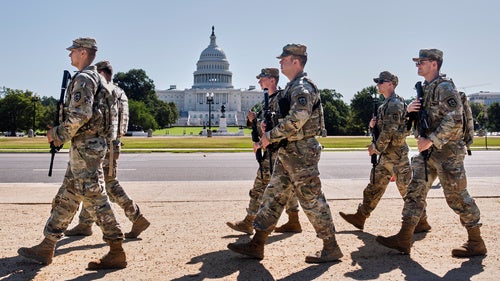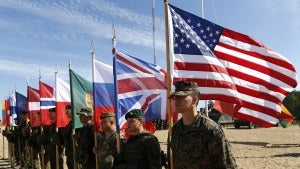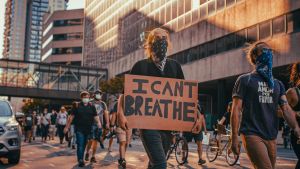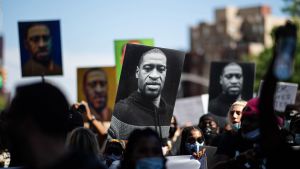Americans Oppose Domestic Use of US Troops

Republican Party supporters stand out as the only partisans in favor of using the military for domestic law enforcement, to suppress protests, and to control immigration.
American troops have a history of being used to quell protests in the United States, with some prominent examples including those in response to the assassination of Dr. Martin Luther King, Jr. and over the Vietnam War during the 1968 Democratic National Convention. However, recent weeks have seen an escalation in the use of troops for domestic operations to a degree not seen in any recent memory. In Washington, DC, President Donald Trump has commissioned the use of District police, deployed immigration agents, and asked states to lend their National Guard forces to the nation’s capital, urging a crackdown on crime. Clearly, whether US troops should be used domestically has gone from a theoretical question to a practical one.
The 2025 Chicago Council Survey, conducted July 18-30, 2025, was fielded before the August federal takeover of DC police, but after the Trump administration’s decision in June to send National Guard troops to Los Angeles to intervene in largely peaceful protests against ICE raids. It finds a majority of Americans oppose the use of US troops to suppress domestic protests against the US government (70%). While Democrats and Independents strongly oppose the use of troops in this case (83% and 76%, respectively), Republicans are more evenly split: 52 percent are in favor, while 47 percent oppose.
Intra-party differences between those who support the Make America Great Again (MAGA) movement and those who do not are also striking. Of those Republicans who consider themselves MAGA Republicans, a majority say they would support US troops being used to suppress domestic protests against the government (56%). In comparison, a majority of non-MAGA Republicans say they would oppose the use of US troops for this purpose (also 56%).
When asked whether they would support or oppose using US troops to conduct law enforcement operations in the United States, a majority of Americans say they would oppose it (57%). Among the partisans, majorities of Democrats and Independents are against this use of American forces (72% and 64%, respectively), compared to just three in 10 Republicans who say the same (29%). Instead, the majority of Republicans welcomes the use of US troops to conduct law enforcement operations in the United States (70%).
Majorities of Republicans across the current ideological divide in their party agree on this policy option. While MAGA Republicans are most emphatic in their backing, with three-quarters saying they would support the use of US troops to conduct domestic law enforcement operations (75%), a smaller majority of non-MAGA Republicans feel the same way (57%).
On a similar issue leading headlines, Americans were also asked whether they would favor or oppose the use of US troops to stop immigrants coming into the United States from Mexico. Party-line differences on the topic are similar to those previously discussed: Eight in 10 Republicans favor using US troops to block immigrants at the southern border (83%), while eight in 10 Democrats oppose it (83%). Independents are fairly divided (59% oppose vs. 40% favor), similar to overall public opinion (55% oppose vs. 44% favor).
Attachment to MAGA political ideals also has a marked impact on intraparty differences here. While majorities of GOP supporters back this use of US troops, there is a 30-point difference in opinion between MAGA (93% favor) and non-MAGA Republicans (63% favor).
Conclusion
Public opinion data from the Chicago Council on Global Affairs show that Americans generally hold views that reject the domestic use of troops against protesters and immigrants seeking to enter the country. Majorities of Democrats and Independents are opposed to this usage. The results also make clear that identification with MAGA values plays a significant role in determining Republican sentiments on this issue. These differences highlight the sharpening ideological divide in America’s government, and as US troops patrol the nation’s capital, this divide could put more of a strain on the function of the US political system.


Related Content
 Public Opinion
Public Opinion
The public also remains in favor of maintaining long-term military bases abroad.
 Global Cities
Global Cities
Samuel Kling examines the governability of urban areas in times of riots and pandemics.

